Row between Warsaw and Kyiv adds to fears over unified Western support for Ukraine
Public debate about how peace may look in Ukraine is almost a taboo topic in Europe right now. And Poland’s bitter dispute with Kyiv over grain prices is only complicating matters.
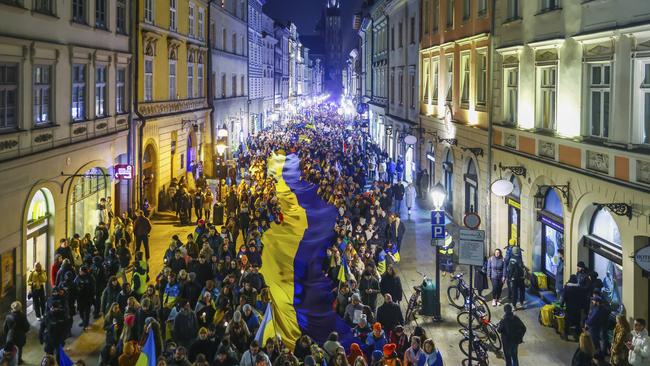
“I know that we are seeing fatigue from the war, but the world cannot forget what Putin is doing, it cannot forget the people of Ukraine, it cannot forget us, please,” says the 30-year-old, whose family remains in a village near the Russian frontline in eastern Ukraine.
She is hoping, like all Ukrainians, that the West, including Australia, holds firm in its steadfast support for Ukraine after 19 months of a conflict that is sapping billions in aid with little reward on the battlefield.
But that unity – which has lasted far longer than most experts had predicted – is being tested like never before. If this support should crumble, then experts agree that Ukraine is all but doomed on the battlefield.
In Europe, Poland, which was Ukraine’s biggest supporter, suddenly has declared it will not send new weapons to Ukraine because of a bitter dispute with Kyiv over grain prices.
The move came after Ukrainian President Volodymyr Zelensky triggered fury in Poland when he insinuated that Warsaw was playing into the hands of Russia by indulging in “political theatre” over the grain dispute.
The extraordinary tit-for-tat between the two leaders has unnerved other European capitals, which are pushing to maintain unified Western support for Ukraine.
It comes at a time of growing debate over Ukraine in the US, where the isolationist wing of the Republican Party opposes further US support for Kyiv.
None of this means that the West’s steadfast military and financial support for Ukraine is in serious jeopardy. But neither is it guaranteed, especially if the war makes little progress in the next six months.
“Support for Ukraine is still strong but it is messier than it was a year ago,” Mika Aaltola, director of the Finnish Institute of International Affairs and a presidential candidate in Finland, tells Inquirer. “People in Europe are increasingly aware that war support for Ukraine is costly and across the Atlantic the US elections are getting closer.
“Russia is not a chess player, it’s a street fighter, and it will see any weakness, any hesitation from the West as a green light to do more.”
Inquirer spent two weeks in four European capitals – Warsaw, Paris, Helsinki and Brussels – speaking with political ministers, senior diplomats, military generals and international experts about what is unfolding in Ukraine.
The war has changed Europe more profoundly than any event since the Cold War. It has punctured Germany’s post-war peace mentality, leading it to a historic effort to supply arms to Ukraine. It has led the previously neutral Sweden and Finland to seek membership of NATO – the ultimate own-goal for Vladimir Putin, whose pretext for invading Ukraine was to stop it joining NATO.
While each country in Europe has its own perspective, a series of key themes emerges. The most depressing is that almost no one believes Ukraine has a path to a military victory in the short term even though Ukrainian forces regularly are making spasmodic small gains in the deadlocked southeastern front.
But, equally, no one believes there is any chance of a military victory by Russia, saying the best Putin can hope for is to freeze the war on the current frontline and wait for a change of circumstance.
That change of circumstance, they say, is a long-term bet by the Russian leader that the West will tire of the war and eventually slow the flow of military aid that is keeping Ukraine’s fight alive.
As such, there are now two front lines of the Ukraine war – the blood-soaked metre-by-metre battle in the country’s east and the political battle in the West to keep its resolve on Ukraine.
Peter Stano, the EU’s spokesman for foreign affairs and security policy, says that so far the West is holding its nerve.
“One of the biggest failures of Putin in this war, one of the many failures, was actually that he completely misjudged the ability of the EU to stay united until today,” he says in an interview in Brussels.
“The EU is as united as ever before in its continuous condemnation of this war, its continuous support for Ukraine, and we are not scaling down the support. In fact, we are growing it.”
Although the US remains the single biggest military and financial backer of Ukraine with $US75bn ($117.5bn) in assistance so far, European nations have stepped up with a series of multi-year support packages totalling $US165bn, according to the Kiel Institute for the World Economy in Germany.
“The doubling of EU aid is a notable shift compared to the first year of the war, when the US clearly led the way,” says Christoph Trebesch, head of Ukraine research at the Kiel Institute.
But the fallout between Ukraine and its neighbour Poland is being watched carefully, not only across Europe but also at the Kremlin.
The dispute was caused by Russian attacks that have disrupted Ukraine’s grain transit routes in the Black Sea, forcing a desperate Kyiv to bring cheap Ukrainian wheat overland into the EU market.
But Poland’s ruling party, which faces an election on October 15, has slapped a ban on Ukraine grain to protect Polish farmers who are critical to its re-election chances. Kyiv says the move is illegal and has referred it to the World Trade Organisation.
Zelensky’s UN comments, which implied that Poland’s actions were helping Russia, have deeply wounded Warsaw, which points out that Poland has been the most fierce European advocate for Ukraine since the war began.
Poland is the sixth biggest military donor to Ukraine, having delivered hundreds of Soviet-era tanks and armoured personnel carriers for Ukraine’s war effort, as well as 14 MiG-29 fighter jets. It also has become home to more than 1.7 million Ukrainian refugees.
Although the dispute has angered both countries, experts say it needs to be viewed in the context of the current election campaign.
Few people believe Polish Prime Minister Mateusz Morawiecki will follow through on his claim to halt shipments of new weapons to Ukraine.
Even Polish President Andrzej Duda warned against an “over-interpretation” of the Prime Minister’s comments.
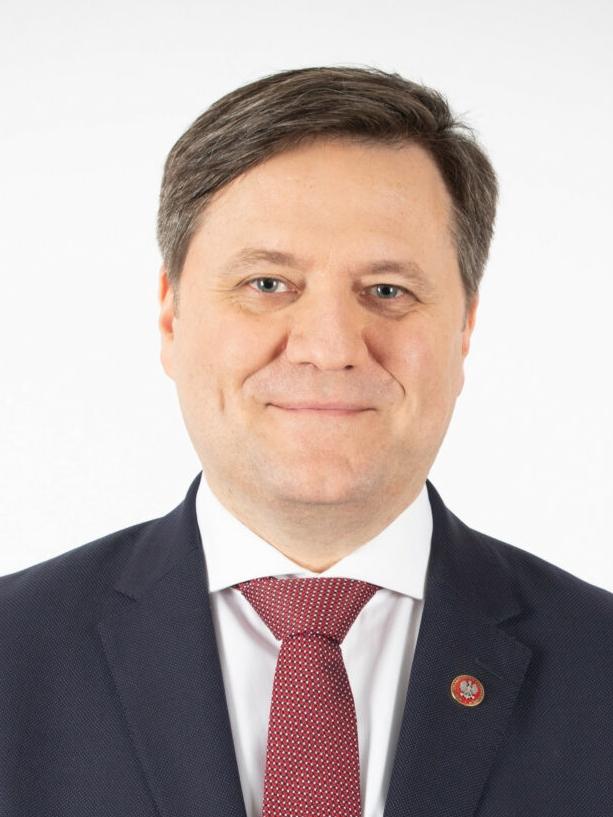
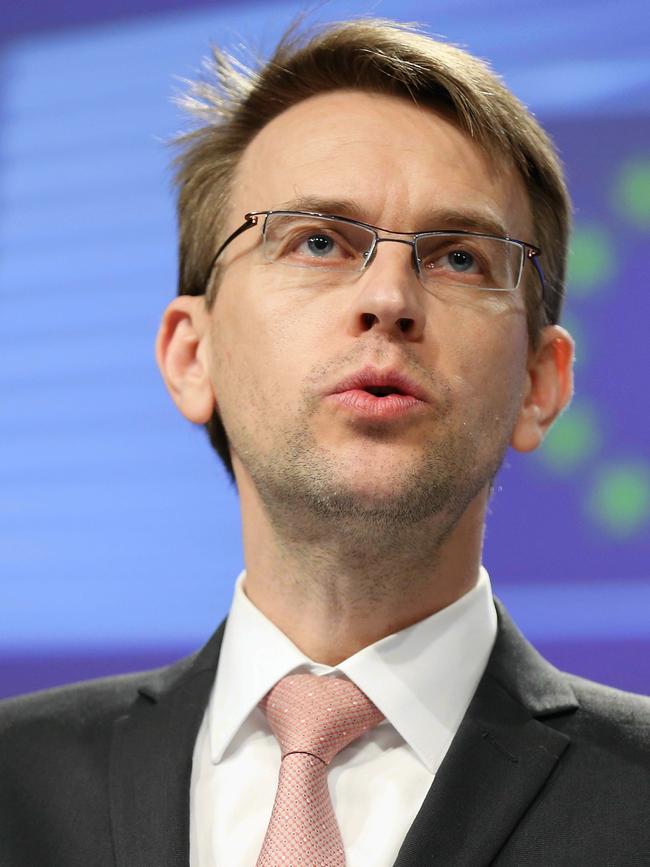
In an interview in the foreign ministry in Warsaw this week, I asked Poland’s Under Secretary of State for Foreign Affairs, Wojciech Gerwel – who is effectively the country’s deputy foreign minister – how serious the dispute was and what it meant for the war.
“We look at it as a glitch of sorts,” he replied. “We see it as a miscalculation by Ukraine. But we do not feel that this is a fundamental rift of strategic importance.”
Gerwel said Poland would continue to be a staunch supporter of Ukraine’s war effort.
“Frankly, Europe is even stronger and more united than I expected,” he said. “Poland was the first to provide military assistance and we weren’t sure if others would follow but they did, and there is still momentum there.”
Gerwel is one of many senior European officials who told me how surprised they were that, apart from this latest dispute between Poland and Ukraine, no serious cracks have yet appeared in the West’s support for Ukraine. It was widely expected – and feared – the West’s enthusiasm for helping Ukraine would wane after the first year of conflict.
This expectation only grew when Ukraine’s counteroffensive against the Russians, which began in June, became bogged down into a prolonged stalemate on a battlefield littered with deadly mines, trenches and tank traps.
The EU’s Stano says the key to keeping public support – and therefore government support – for assisting Ukraine is to explain to people how terrible the alternative is. “The support for Ukraine will continue as long as governments can explain to the population that this is really our vital interest and that we are fighting for not only the Ukrainians and for international principles but also for our survival,” Stano says.
“Because if Putin wins, Ukraine will cease to exist, the Ukrainian nation will be eliminated, and this will be a direct attack on the stability and on our way of life because Putin will not stop there.”
But in European capitals there is concern that the ability of governments to keep justifying ever-increasing military support is linked, in part, to progress on the battlefield.
“Public support (for Ukraine) could decline more in the future if news from the battlefield suggests a protracted conflict in which neither side can prevail militarily,” says a report by Britain’s House of Commons released in August. “In the absence of progress on the battlefield, voices calling for a peace settlement, even on unfavourable terms to Ukraine, might gain traction in the public debate.”
But the public debate about how peace may look in Ukraine is almost a taboo topic in Europe right now.
Stian Jenssen, chief of staff to the NATO Secretary-General Jens Stoltenberg, was forced to apologise in August when he stated publicly that a peace solution could be for Ukraine to give up some territory and get NATO membership in return. His comments received a withering reply from Zelensky’s senior adviser Mykhailo Podolyak, who said a land-for-NATO deal was “ridiculous” and would mean “deliberately choosing the defeat of democracy, encouraging a global criminal, preserving the Russian regime, destroying international law and passing the war on to other generations”.
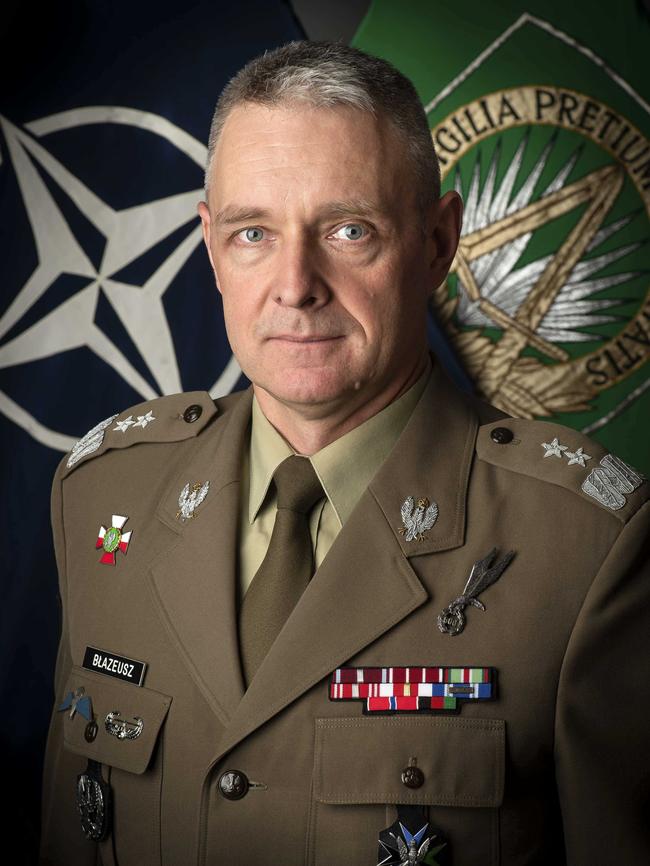
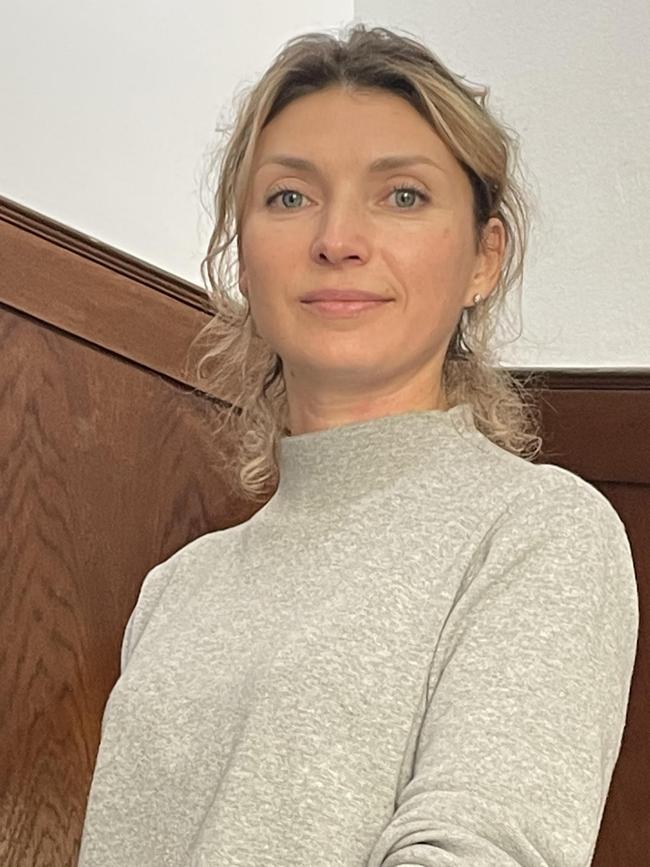
There is no doubt that, in every European capital, government is trying to nut out a solution to the Ukraine dilemma, but for now those discussions are taking place behind closed doors. To bring them into the open not only offends Ukraine but also gives encouragement to Putin.
“The Russians are different, they cannot be appeased, they cannot be trusted,” says Lieutenant General Piotr Blazeusz, Poland’s First Deputy Chief of the General Staff, in an interview in his Warsaw office. “If we have a dialogue with them they take it as a sign of weakness so we can only ever have dialogue with Russians from a position of strength.”
Blazeusz says the war is entering a critical time when “Russia is trying to attack European unity with disinformation”.
“The war is complicated because Russia has a very in-depth defence and it is very costly for both sides. But I think Ukraine is still making progress and this is why we have to keep supporting them. If they cannot stop the red wave it will keep on coming.”
For some Ukrainian refugees, such as 31-year-old Yuliia Repenko, the war already has gone too far for her ever to return to her homeland. Repenko and her 12-year-old son have not seen her husband – a shooting instructor for Ukrainian troops in Kyiv – since the war started. “I am too scared to ever go back to live there now,” she tells me at a refugee centre in Warsaw.
“There are (land) mines everywhere, it is too dangerous, it is too late.” She will have to wait until the war ends for her husband to leave Ukraine, if he survives. Poland will be her new home.
Since the start of the war in February last year, Poland has lifted its defence spending to 4 per cent of gross domestic product – almost double the percentage of most other NATO members.
Such levels are necessary, says Blazeusz, in case the Russians “do something very stupid” to Poland.
The EU’s Stano says it will be up to Ukraine to decide if and when it ever wants to consider a negotiated peace. “Any kind of peace or peace settlement will not be on EU terms. It will not be on US terms. It will be on Ukrainian terms,” he says. “They decide the point at which they don’t want to fight.
“It’s their decision. We stay behind them. And that’s why all this public advice or speculation is again counter-productive for the Ukrainians because they are the subject of Russian aggression, no one else.”
A senior French diplomat in Paris who recently visited Ukraine told me that Zelensky was not interested in any negotiated solution and that if he pursued it he almost certainly would be deposed.
“Ukrainians tell us they prefer a long and costly war to any territorial compromise,” he said. “If Zelensky wants to remain in power it will be difficult for him to enter into any kind of (negotiation) game.
“We should prepare for a long war. There is no quick fix to this situation. We need to prepare the public for this.”
Although no one can guess what is in Putin’s head, none of the officials I met with in Europe believed he had any intention of seeking a negotiated solution to the war. The popular assumption is that Putin is seeking to create a stalemate along the long eastern frontline and wait it out until the US presidential election in November next year.
“We are all somewhat concerned about the upcoming US presidential elections,” Finland’s Permanent Representative to NATO, Piritta Asunmaa, says in an interview at NATO headquarters in Brussels.
“Putin is planning for this war to continue so that he can see whoever comes after Joe Biden or whether Biden will continue and how willing the next US administration is to continue its support.”
Although European officials insist they will continue to support Ukraine regardless of what the US does, they admit privately that any wavering in American support for Ukraine would greatly undermine Europe’s resolve to assist Kyiv.
Donald Trump, the frontrunner for the Republican nomination, has said he opposes more funding for Kyiv and previously has expressed his admiration for Putin.
Biden’s speech at the UN last week was a strong assertion of US support for Ukraine, but his words were also directed at those Republicans opposed to further support for Ukraine.
“Russia believes that the world will grow weary and allow it to brutalise Ukraine without consequence,” Biden warned, as Zelensky looked on.
“But I ask you this: If we abandon the core principles of the United States to appease an aggressor, can any member state in this body feel confident that they’re protected?”
Yet the optics of Zelensky’s visit to Washington also were concerning. When the Ukraine leader visited in December he received a hero’s welcome in congress. This time he was shuffled between closed-door meetings trying to convince Republicans not to block future US assistance because of war fatigue.
This is why Zelensky’s globetrotting struggle to win ongoing military support for his country, including longer-range weapons needed to break the current impasse, is never-ending.
The West’s determination to keep feeding weapons to Ukraine has been stronger for longer than most expected. Europe has so far held up its end of the bargain. But there are limits, and that is what Putin will be hoping for.
Cameron Stewart visited Europe as the recipient of the 2023 EU-Qantas Journalist Award.



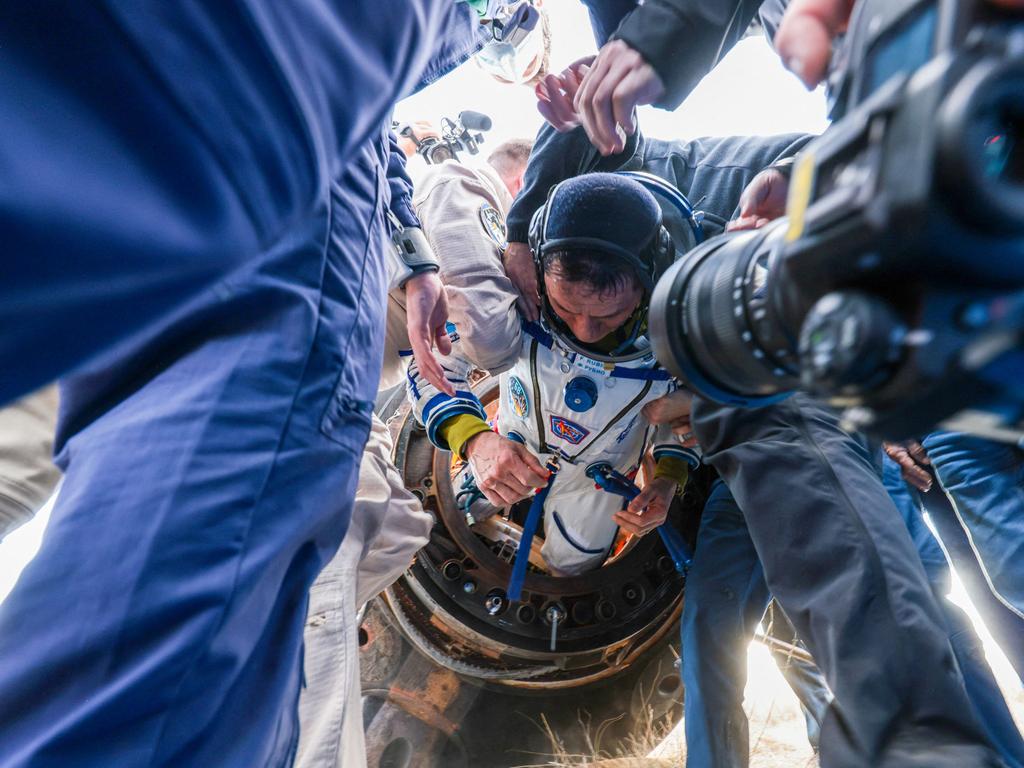
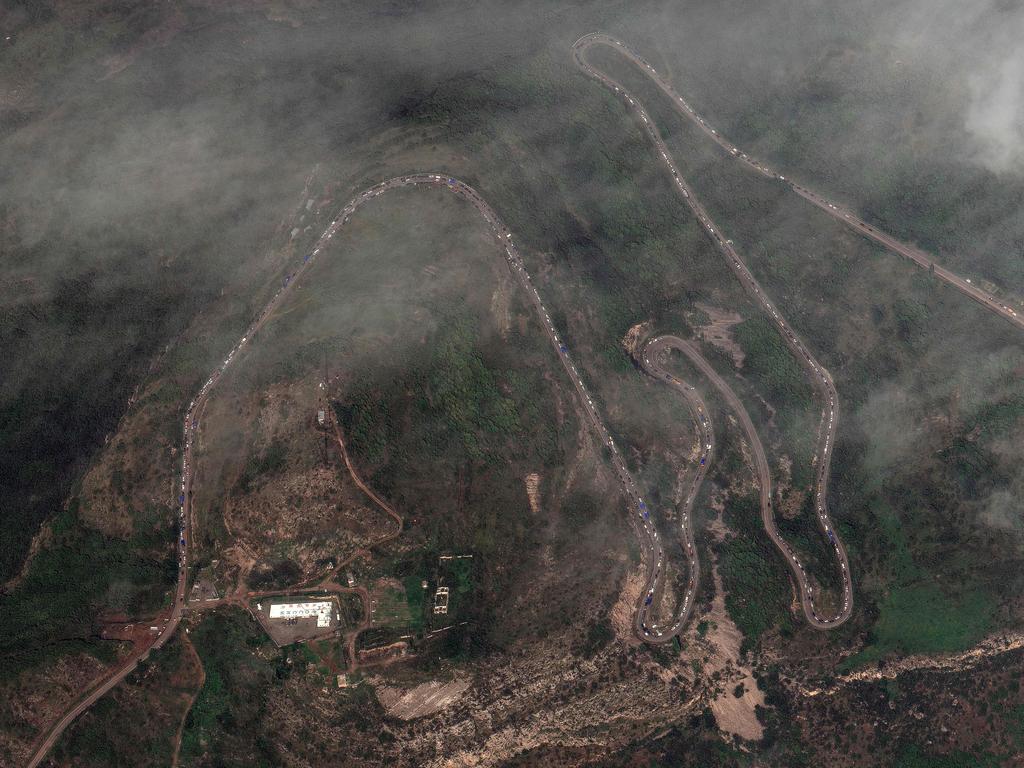
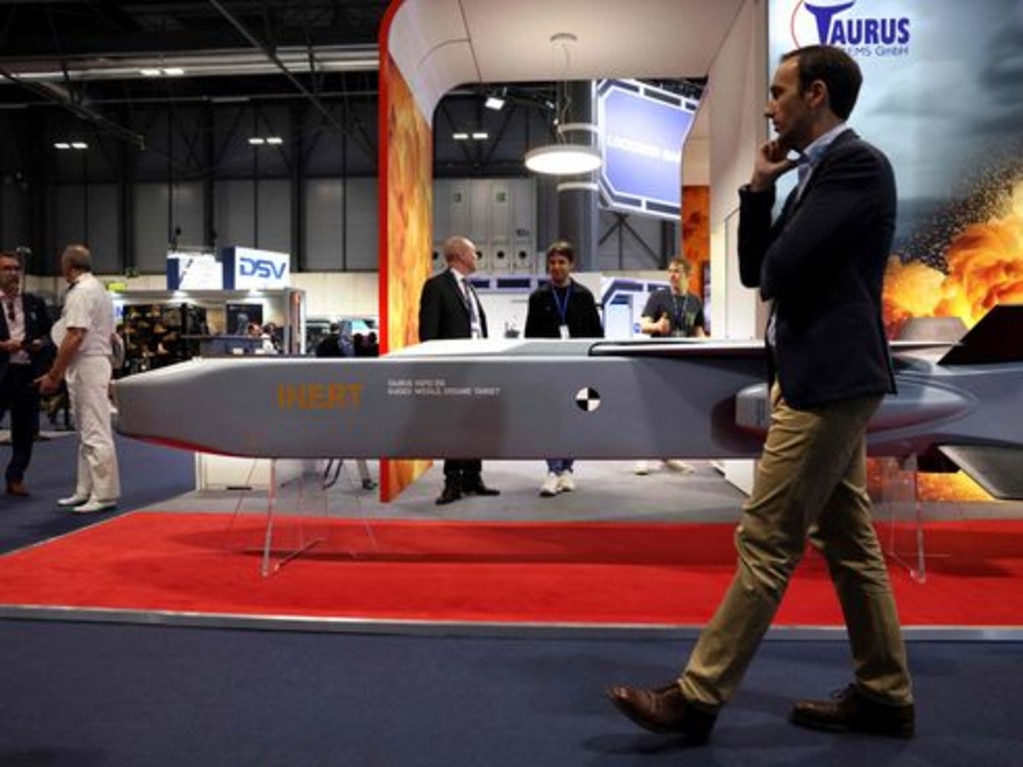


In Warsaw, Oksana Pestrykova sits in a room full of sad-eyed refugees from Ukraine and talks about the tipping point that Europe and the West face.